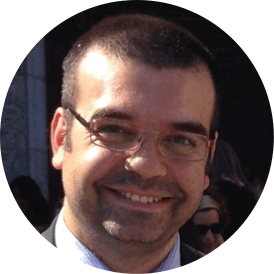Atheistic boredom
- Michael Panao
- 17 de dez. de 2016
- 3 min de leitura

I recently read some statements by Jerry Coyne who seems in need of taking a piece of the pie usually eaten by Richards Dawkins, Sam Harris and other neo-atheists with certainties such as
"Science and religion are in conflict. (...) scientific claims are made on the basis of observational and experimental evidence that is widely agreed on (and makes testable predictions), while religious claims are made on the basis of revelation, dogma, scripture, and authority." - I guess scientists like Jerry Coyne know more about religion by not being religious. It's like to know more about science by not making science. Besides, he must be unaware of works like Bernard Lonergan's Method in Theology because religious claims are investigated like anything else.
"Only one of these epistemological methods is reliable," - how does he know?
"we can dismiss their arguments out of hand because they involve a deity for which there’s no evidence" - I suppose he's speaking about scientific evidence, but where is the scientific evidence that only scientific evidences are... evident? Besides, should we expect that someone beyond materiality be demonstrated materially through science? Did he read Flatland?
"A 'constructive' dialogue between science and religion can go only one way: science tells religion what’s true, and religion has to deal with it." - A cherry on top of the cake. Where is the scientific evidence for that? What was the method used? Where is the analysis? What kind of results? Should physics also tell biology what's true, and biology has to deal with it? Mamma mia...
"science can force religion to change its theology, while religion can have no effect on science" - finally I understand! Only a non-religious person would say this. Therefore, this kind of atheists have a biased version of the relationship between science and religion. And that can be a problem, however, curiously, a problem that sells. Go figure.
In science we have to go deep into the subject to pronounce anything meaningful about it. I once heard being an expert in a topic implies studying at least 2h of new stuff every day for 10 years. Being a scientist against religion is more fashion than anything else. I know a few atheists are not against religion, it's just that their religious sensibility is low, which doesn't mean they don't care or value religion and religious claims.
According to constructal theory, configurations evolve in time to provide easier access to the currents that flow through them. Dialogue is a flow of knowledge through sharing. Arguments like Coyne's claim that science is the ultimate path to knowledge is scientifically unsound. Religion opens us (body-mind-spirit persons) to the existence of several levels describing Reality. And while reductionist vision, like Coyne's, stop the dialogue flow, a view including religion does not (obviously I'm excluding religious fundamentalists, where this critique also applies).
No one will ever know what is Real.
We can only explore Reality.
If Reality is material (like energy) or immaterial (like information), we use science.
If Reality is spiritual, which is beyond what is material or immateria, we use theology.
The sense and meaning of our lives and thoughts is, mostly, based on our personal experience. People like Jerry Coyne impose their ideas like absolute truths, but seldom apply their fundamental principles to their own ideas.
The same way we can distinguish psychology from psychiatry, or Literature from Philosophy, more important is distinguishing science from religion, or should I say, theology. Their compatibility doesn't come from looking to the same Reality from a competitive point of view, but more from looking to the different levels of understanding Reality, confronting them with our personal experience.
Each time I try to read best-selling atheist authors and their claims, I'm incredibly bored. Their ideas haven't changed and the affirmative unsound statements continue the same. I think people keep putting up with this atheistic boredom because they actually by their books! And I wonder why...
So, my question to these people is simple.
What changes in your life when you read these books against religion?
Is the world making more sense and meaning?
And if you answered "yes", what changed, what sense, and what meaning?







Comentários